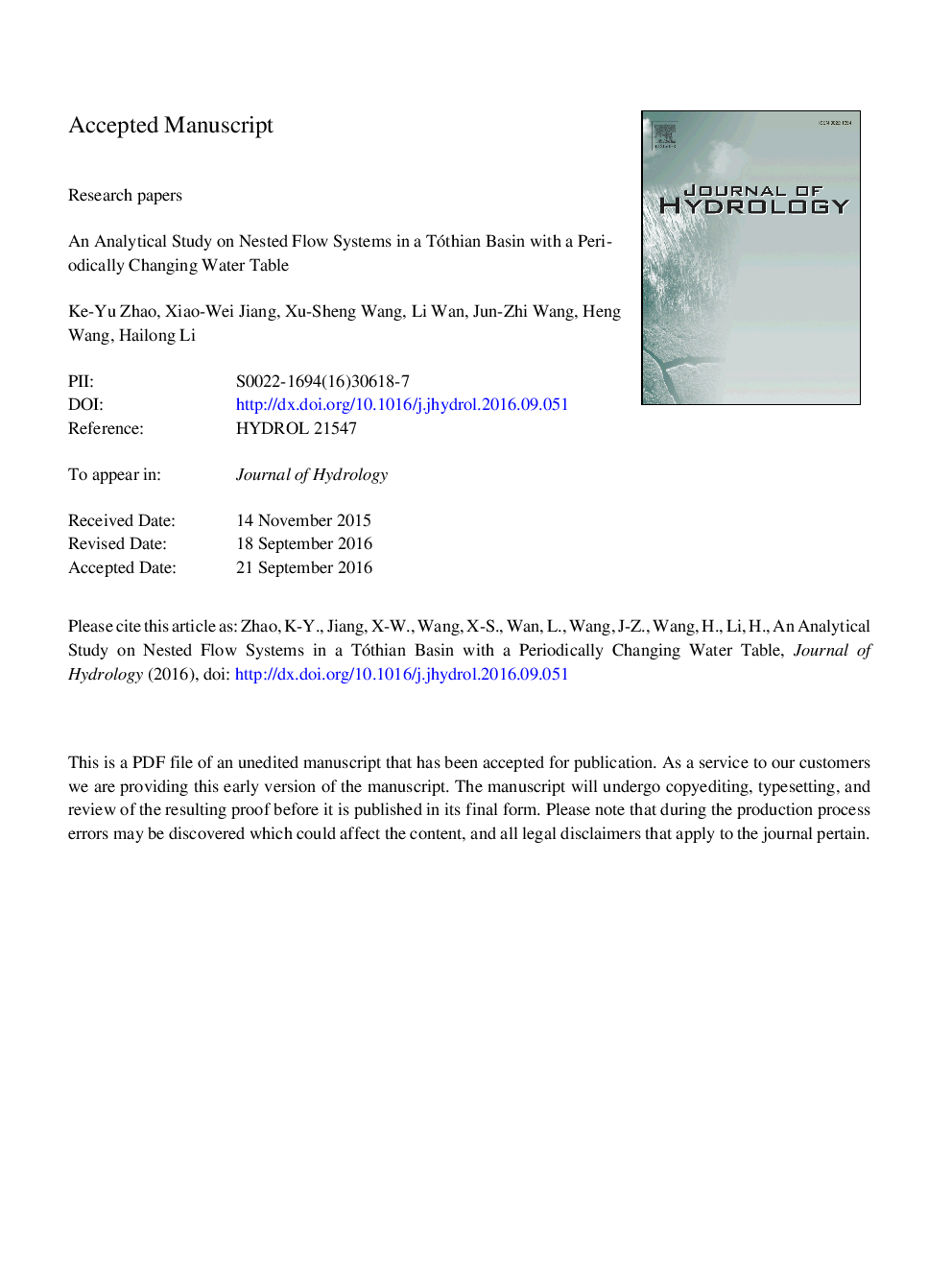| Article ID | Journal | Published Year | Pages | File Type |
|---|---|---|---|---|
| 8895184 | Journal of Hydrology | 2018 | 46 Pages |
Abstract
Classical understanding on basin-scale groundwater flow patterns is based on Tóth's findings of a single flow system in a unit basin (Tóth, 1962) and nested flow systems in a complex basin (Tóth, 1963), both of which were based on steady state models. Vandenberg (1980) extended Tóth (1962) by deriving a transient solution under a periodically changing water table in a unit basin and examined the flow field distortion under different dimensionless response time, Ïâ. Following Vandenberg's (1980) approach, we extended Tóth (1963) by deriving the transient solution under a periodically changing water table in a complex basin and examined the transient behavior of nested flow systems. Due to the effect of specific storage, the flow field is asymmetric with respect to the midline, and the trajectory of internal stagnation points constitutes a non-enclosed loop, whose width decreases when Ïâ decreases. The distribution of the relative magnitude of hydraulic head fluctuation, Îhâ, is dependent on the horizontal distance away from a divide and the depth below the land surface. In the shallow part, Îhâ decreases from 1 at the divide to 0 at its neighboring valley under all Ïâ, while in the deep part, Îhâ reaches a threshold, whose value decreases when Ïâ increases. The zones with flowing wells are also found to change periodically. As water table falls, there is a general trend of shrinkage in the area of zones with flowing wells, which has a lag to the declining water table under a large Ïâ. Although fluxes have not been assigned in our model, the recharge/discharge flux across the top boundary can be obtained. This study is critical to understand a series of periodically changing hydrogeological phenomena in large-scale basins.
Related Topics
Physical Sciences and Engineering
Earth and Planetary Sciences
Earth-Surface Processes
Authors
Ke-Yu Zhao, Xiao-Wei Jiang, Xu-Sheng Wang, Li Wan, Jun-Zhi Wang, Heng Wang, Hailong Li,
